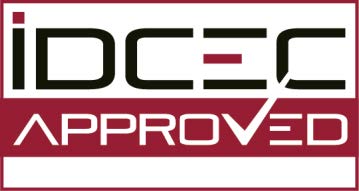
Framing Urban Biophilic Interiors Through Design Ethics
-
You must log in to register
- Guest - $59
- ASID Member - Free!
Learn how to apply biophilic design solutions and participatory design strategies in your practice.
Continuing Education Approvals
- 1 IDCEC CEU HSW | CC-116583R1 (Your CEU will be reported to IDCEC on your behalf)
- 1 AIA LU HSW | FrUrbBiophInter (AIA Members: Please contact education@asid.org to have your completion reported or add your AIA Member number to your ASID account profile.)
Description
How do you inclusively design interior nature-influenced spatial experiences considering equity, diversity, and culture, while promoting play, education, and growth? You will learn about systemic inequality issues related to nature access and investigate what biophilia means for the nature deprived. Design Ethics will be introduced as a toolkit to establish a baseline for framing and terminology and explained through a series of Case Studies. We will discuss participatory design processes or co-design to allow for more inclusive and creative spatial conditions while simultaneously considering the health, safety, welfare, and delight of the community.
Content developed as part of the ASID Ones to Watch Scholars Leadership Development Program, supported by Steelcase, Benjamin Moore, Wilsonart, and Loloi. Learn more about ASID Ones to Watch.
What You Will Learn
- Explain what connection to nature may mean for those without opportunity, access, means, or inclusive spaces to comfortably enjoy its documented benefit
- Explain what Design Ethics are and why it is important as a framework for biophilic interiors
- Recognize how biophilic design solutions can address gaps or opportunities related to social determinants of health
- Identify aspects of story or narrative to allow for increased empathy and engagement including co-design tools or processes
Access Period: One year after registration.
Kendra Locklear Ordia, ASID, RID, NCIDQ, LEED AP
Assistant Professor of Interior Design
College of Architecture, University of Nebraska-Lincoln
Kendra Locklear Ordia is an assistant professor of interior design in the College of Architecture at the University of Nebraska-Lincoln. She focused on healthcare and workplace design throughout her career at firms like Perkins & Will, Gensler and CallisonRTKL. Her teaching and research explore human behavior and the built environment expressed in themes of biophilic design, health and wellbeing, environmental quality, and spatial ecologies. Kendra’s research has been featured in Interiors: Design/Architecture/Culture, and her nature-inspired work has been exhibited at several national and international exhibitions including Public Interiority, DesignLAB Next Nest Exhibition and at Curtains: The Center for American Architecture and Design Symposium. In 2020, she was recognized as an American Society of Interior Design (ASID) Ones to Watch scholars. In 2023 she was awarded the Interior Design Educator Council Teaching Excellence Award, and in 2024 recognized as the ASID Educator of the Year. As an NCIDQ certified designer, she is actively involved in Interior Design licensing advocacy in Nebraska, and currently serves as director-at-large on the FY2025 ASID Board of Directors.

This CEU is registered with the International Design Continuing Education Council (IDCEC) for continuing education credits. This credit will be accepted by the American Society of Interior Designers (ASID), International Interior Designers Association (IIDA) and Interior Designers of Canada (IDC).
The content included is not deemed or construed to be an approval or endorsement by IDCEC of any material or construction or any method or manner of handling, using distributing or dealing in any material or product.
Questions related to specific materials, methods and services should be directed to the instructor and provider of the CEU.
This program is registered for 1 CEU | HSW value. The IDCEC class-code is: CC-116583.
Attendees who do not belong to ASID, IIDA or IDC and do not have a unique IDCEC number will be provided with a Certificate of Completion after this CEU.
